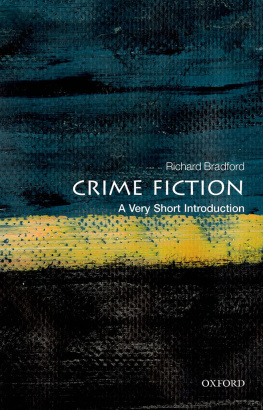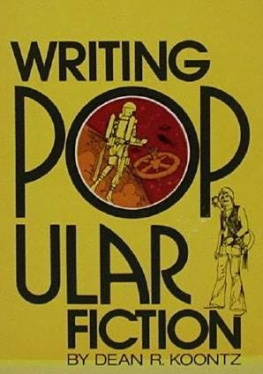Jerng - Racial Worldmaking. The Power of Popular Fiction
Here you can read online Jerng - Racial Worldmaking. The Power of Popular Fiction full text of the book (entire story) in english for free. Download pdf and epub, get meaning, cover and reviews about this ebook. year: 2018, publisher: Lightning Source Inc. (Tier 2), genre: Politics. Description of the work, (preface) as well as reviews are available. Best literature library LitArk.com created for fans of good reading and offers a wide selection of genres:
Romance novel
Science fiction
Adventure
Detective
Science
History
Home and family
Prose
Art
Politics
Computer
Non-fiction
Religion
Business
Children
Humor
Choose a favorite category and find really read worthwhile books. Enjoy immersion in the world of imagination, feel the emotions of the characters or learn something new for yourself, make an fascinating discovery.

Racial Worldmaking. The Power of Popular Fiction: summary, description and annotation
We offer to read an annotation, description, summary or preface (depends on what the author of the book "Racial Worldmaking. The Power of Popular Fiction" wrote himself). If you haven't found the necessary information about the book — write in the comments, we will try to find it.
Jerng: author's other books
Who wrote Racial Worldmaking. The Power of Popular Fiction? Find out the surname, the name of the author of the book and a list of all author's works by series.
Racial Worldmaking. The Power of Popular Fiction — read online for free the complete book (whole text) full work
Below is the text of the book, divided by pages. System saving the place of the last page read, allows you to conveniently read the book "Racial Worldmaking. The Power of Popular Fiction" online for free, without having to search again every time where you left off. Put a bookmark, and you can go to the page where you finished reading at any time.
Font size:
Interval:
Bookmark:

RACIAL WORLDMAKING
THE POWER OF POPULAR FICTION
MARK C. JERNG
FORDHAM UNIVERSITY PRESS
New York 2018
Copyright 2018 Fordham University Press
All rights reserved. No part of this publication may be reproduced, stored in a retrieval system, or transmitted in any form or by any meanselectronic, mechanical, photocopy, recording, or any otherexcept for brief quotations in printed reviews, without the prior permission of the publisher.
Fordham University Press has no responsibility for the persistence or accuracy of URLs for external or third-party Internet websites referred to in this publication and does not guarantee that any content on such websites is, or will remain, accurate or appropriate.
Fordham University Press also publishes its books in a variety of electronic formats. Some content that appears in print may not be available in electronic books.
Visit us online at www.fordhampress.com.
Library of Congress Cataloging-in-Publication Data available online at http://catalog.loc.gov.
for Liane, Seneca, and Chloe
RACIAL WORLDMAKING
Popular fiction and racial representation. Put together, these two phrases likely conjure in your mind the most explicitly racist images and regressive fantasies in the American and British cultural imaginary. The black rapist of plantation romance. The evil Asian villain in science fiction. Fantasies of ridding the world of invading Orcs. Yellow hordes threatening to engulf the globe. Twentieth-century popular fictions such as Thomas Dixons Birth of the Nation, Robert Howards Conan the Barbarian stories, M. P. Shiels The Yellow Wave, among others, are famous for disseminating some of the basest tendencies of humankind: xenophobia, misogyny, and racism. What can an exploration of these popular genre fictions possibly offer twenty-first-century race critique? What can it show besides the dark forces of ignorance and prejudice that antiracism must repeatedly cure?
The gambit of this book is that such an exploration is indispensable at this time. Far from being regressive remainders of white supremacy, biological racism, and political race hatred that can be written off as the extremism of the few, these genre fictions are at the center of what I call racial worldmaking. Racial worldmaking is my phrase for narrative and interpretive strategies that shape how readers notice race so as to build, anticipate, and organize the world. These strategies prompt us to notice race in unlikely sites and in unexpected ways. They locate race at the level of context, atmosphere, sequence, and narrative explanationlevels, that is, other than the biological representation of bodies or the social categorization of persons. Thus, their effectiveness in producing the conditions of racism lies not so much in the conventional sense of discriminating against specific persons; rather, it consists in getting us to embed race into our expectations for how the world operates. Ignoring it or concentrating only on how these fictions reflect already existing racial ideologies destines us to our ongoing participation in the structures of our racial worlds.
My theory of racial worldmaking as narrative and interpretive strategies for constructing relationships between noticing race and building worlds stems from two main interventions that I explain below. The first is that race critique has overemphasized the visual epistemology of race and its bases in scientific racism and comparative anatomy. I emphasize instead the salience of race: we are taught when, where, and how race is something to notice. Noticing race in some contexts and not others shapes how we organize situations, forms of reasoning, and expectations about what is going to happen. The second is that fictional and nonfictional genres do not just express or represent race as if race is a given, prior content. Genre and race should instead be conceptualized as deeply interrelated ways of building-in knowledge of the world. Here I develop the senses in which race has an organizing and shaping force that is often associated with genre.
In the parts that follow, I describe and analyze practices of racial worldmaking across four configurations of race and genre: (1) yellow peril future war stories; (2) plantation romances of Reconstruction; (3) sword and sorcery and racial capitalism; (4) alternate history and racial jurisprudence. Within each part of the book, I examine the shaping of formal features and narrative strategies within subgenres of science fiction, romance, and fantasy in relation to discursive possibilities that emerge from prominent historical dramas of racial reorganization. But genre here is not the vehicle for race as sociohistorical content. The mechanisms of genre and race operate together in making available certain knowledges about and projections of the world. Throughout I am interested in the cognitive effects of truth and authority produced by these popular genres. I explore their overlap with writings in the disciplines of history, anthropology, economics, and law in order to argue that they achieve these effects by activating certain ways of perceiving and cognizing race. Moreover, I show how popular fictions are shaped and reshaped in relation to other ways of producing racial meanings.
In order to set the stage for these arguments, I clarify my two main critical interventions mentioned above. First, I develop an approach to race based around racial salience by doing an immanent critique of Michael Omi and Howard Winants racial formation theorystill one of the most influential approaches to race today. Second, I theorize how genre and race are linked and not separate entities, and how they work to build, anticipate, and organize the world. I situate this approach in relation to other literary approaches to race, ones that are most sensitive to races formal, linguistic, and rhetorical dimensions. I conclude my introduction by developing the implications of my approach for rethinking prominent historical explanations of the transformation of racial meaning in the twentieth century. These two methodological interventions work together: in order to analyze the dynamics of racial salience, our approach to thinking about race in literature and the social sciences needs to develop a vocabulary that is alive to the way in which race not only shapes what does happen, but what potentially can happen. This question of when, where, and how we notice race rethinks our usual critical habits for reading race. What emerges, as we will see, is a renewed emphasis on the activity of noticing race as opposed to seeing it. Clarifying the distinction between noticing and seeing takes us to Michael Omi and Howard Winants important work.
By noticing race we can begin to challenge racism.
Michael Omi and Howard Winant, Racial Formation in the United States
In one sense, Omi and Winants phrase in the epigraph has lost any critical edge it might once have had when it was published in the 1994 edition of their landmark Racial Formation in the United States. The powerful demonstrations of systematic racial inequalities and police brutality across social media over roughly the past decade (witnessing, of course, a much longer history of antiblack racism) have made noticing race in order to challenge racism almost obsolete. Black Lives Matter and other related movements against police killings of black people as well as the prison-industrial complex have heightened recognition of these practices that organize the present. They have spearheaded conversations about police reform, racial justice, and racial stratification. Conversely, the repeated rejoinders that race matters and black lives matter, as well as the eloquent and sophisticated arguments that pinpoint practices of racism, are still explained away With an ethos of color-blindness, race neutrality, and universalism still serving as horizons for progress, noticing race in increasingly sophisticated ways can still challenge conceptions in a landscape in which this distancing is prevalent.
Font size:
Interval:
Bookmark:
Similar books «Racial Worldmaking. The Power of Popular Fiction»
Look at similar books to Racial Worldmaking. The Power of Popular Fiction. We have selected literature similar in name and meaning in the hope of providing readers with more options to find new, interesting, not yet read works.
Discussion, reviews of the book Racial Worldmaking. The Power of Popular Fiction and just readers' own opinions. Leave your comments, write what you think about the work, its meaning or the main characters. Specify what exactly you liked and what you didn't like, and why you think so.






